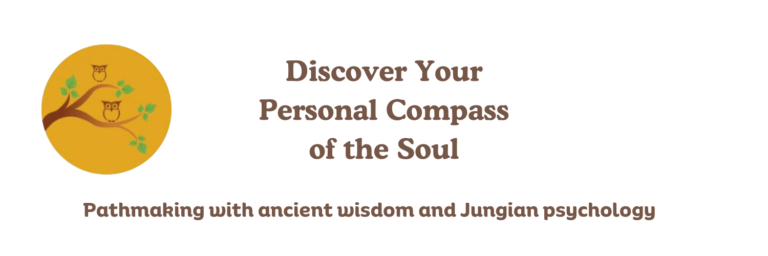The four function is always life’s great problem: if I don’t live it, I am frustrated and half-dead and everything is boring: if I live it, it is of such a low level that I cannot use it.
Lectures on Jung’s Typology by Marie-Louis von Franz
Jung’s close associate Marie-Louise von Franz, in Lectures in Jung’s Typology, said we have a choice about developing our third (eternal child) function, but our fourth (inferior) function is under the control of the unconscious, so we are limited in what we can do with it.
Jungian analyst John Beebe says the inferior function is carried by the anima or animus, which are “archetypes of soul that can serve as tutelary figures, representing the otherness of the unconscious psyche, and also its capacity to speak to us to enlarge our conscious perspectives.”
Even though the anima/animus function is a source of embarrassment and shame, it is critical to wholeness. Beebe says the anima and animus “are like fairy bridges to the unconscious, allowing, almost magically, a relationship to develop between the two parts of the mind, conscious and unconscious, with the potential to replace this tension of opposites with the harmony of wholeness.”
The inferior function is the gateway to the unconscious. As Marie-Louise von Franz said: “The inferior function is the door through which all the figures of the unconscious come into consciousness. Our conscious realm is like a room with four doors, and it is the fourth door by which the shadow, the animus or the anima, and the personifcation of the Self come in.
Beebe writes that in his own work with patients: “I most often found the inferior function, with its uncanny emotionality, to have the character of the anima or animus, the ‘other’ within us, which becomes profoundly upset when its ideals are not met and nearly ecstatic when they are.
If you don’t know which personality type you have, the inferior function will help you identify it. The idealism and higher cause that seizes us typically comes from the inferior function even though it is the area where we are weak. The criticisms that we get upset about often point to the inferior function as well.
Von Franz describes the 8 inferior functions in Lectures on Jung’s Typology. Below is a summary of the inferior functions by personality type:
INTP and ISTP – the inferior function is extroverted feeling (Fe). The person will often place a priority on everyone getting along but may lack the skills to facilitate this.
INFJ and INTJ – the inferior function is extroverted sensation (Se). The person will often care about the quality, design, and cleanliness of things in the physical world but struggle to make that happen or be outright oblivious to it.
ISFJ and ISTJ – the inferior function is extroverted intuition (Ne). The person will have concern for the quality of the future (global warning, etc.) but be unable or very slow to take action towards it.
INFP and ISFP – the inferior function is extroverted thinking (Te). This person may be adamant about putting a project into action even though they aren’t adept at developing a process.
ENFJ and ESFJ – the inferior functon is introverted thinking (Ti). This person may champion a particular kind of philosophy even though they can’t follow the intricate strands of thinking.
ESTJ and ENTJ – the inferior function is introverted feeling (Fi). They may be attached to a particular ideal but be unable to articulate their subjective opinion.
ENFP and ENTP – the inferior function is introverted sensation (Si). When they try to bring something into reality, like a new business, which requires a focus on facts, if it doesn’t work immediately they will often give up too quickly.
ESFP and ESTP – the inferior function is introverted intuition (Ni). They want to concretize their goals, but the lack of focus can find them careening about instead of successfully implementing their vision.
My next, and final, post about the function archetypes will be about the demon function. Stay tuned!
Sources:
Lectures on Jung’s Typology by Marie-Louise von Franz and James Hillman
Energies and Patterns in Psychological Type by John Beebe
